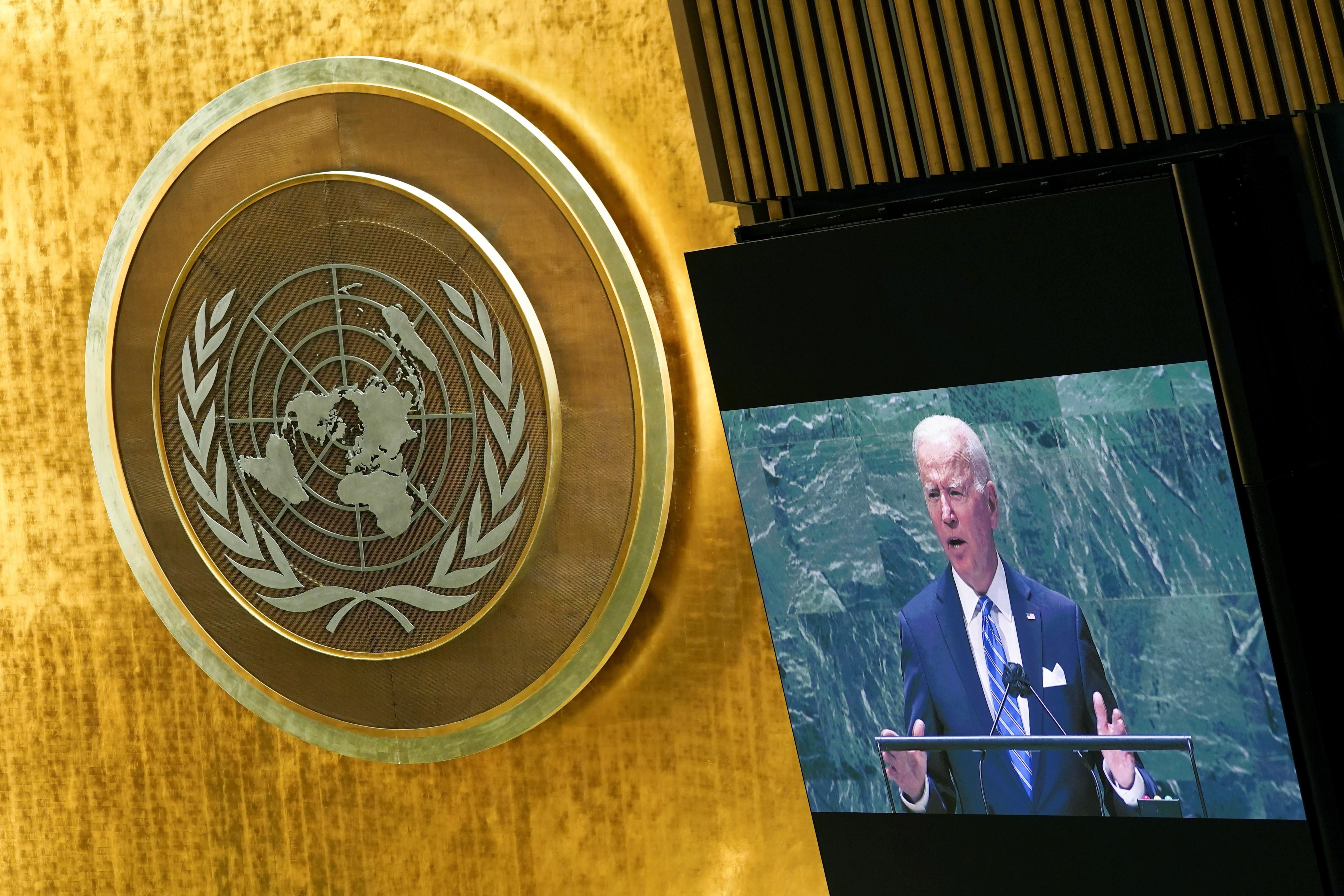Most of the hard-hitting conversations at the UN General Assembly take place behind closed doors. Still, during High-Level Week, when leaders get up to speak at the podium, it's their one big shot to send a message to representatives from the entire world. Here's some of what went down today:
Brazil: Bolsonaro restrained — In the lead-up to the 76th UNGA, Brazil's unvaccinated President Jair Bolsonaro was causing a stir (again) by refusing to comply with New York state law requiring proof of vaccination in public places. (Unable to visit any of New York City's top-notch restaurants, Bolsonaro was snapped eating pizza on the sidewalk like the rest of us plebeians.)
But this confrontational attitude mostly disappeared when a very restrained Bolsonaro stood at the UNGA podium Tuesday, where he expressed support for vaccination efforts (though not mandates), and referenced the government's efforts to combat deforestation. Still, Bolsonaro invoked the culture wars by saying that more latitude should be given to doctors to experiment with COVID treatments, including the "off-label" treatments that aided his recovery last year. Either way, it's the most tame Bolsonaro we're going to get.
US: Biden did his shtick — Amid a massive row with the French, who were recently excluded from a US-led security pact in the Pacific, US President Joe Biden tried to reassert America's commitment to working with allies, which surely caused a few eye-rolls throughout the auditorium.
In a bid to defend his record on Afghanistan, Biden said that the era of "relentless diplomacy" would replace the era of "endless war," and reiterated his oft-repeated stance that US military power should not be used as an "answer to every problem we see around the world." Biden also pledged to boost funding to help poorer countries tackle climate change, and adopted a more conciliatory tone in referencing foes (presumably China): "We're not looking for a new Cold War."
While Biden appeared to say all the right stuff, contrasting with his predecessor's go-at-it-alone approach, in practice his foreign policy hasn't been that different from Trump's at all.
Iran: Raisi wants you to know he's tough — In a pre-recorded address, Iran's new President Ebrahim Raisi made his UNGA debut. And one thing is clear: Raisi is no moderate. Much of his rant-laced speech was focused on denigrating "the US hegemonic system," though he did have some ripper one-liners: "no one cares about America First or America is Back." Raisi also lamented the lack of spirituality in the world, which he says, has spurred the rise of global terrorism.
Still, despite taking aim at the US and defending his country's "peaceful" nuclear program, Raisi did not push back against recent reports that Tehran could resume negotiations with the West over its nuclear program in the near term.
Turkey: Erdogan's laundry list — Clearly, the speechwriter of Turkish President Recep Tayyip Erdogan wanted to make sure that no issue was left unchecked when his boss took the stage at UNGA. Erodgan covered it all. He took aim at wealthy countries for vaccine nationalism, which he called a "disgrace," and affirmed Turkey's commitment to allies spanning Africa, the EU, and Latin America. Turkey's strongman also paid lip service to the Israeli-Palestinian conflict, calling the "persecution of Palestinians" one of the biggest impediments to Middle East stability.
Referencing a series of global crises, Erdogan made it clear that Ankara wants to be the power broker in Libya as well as in post-US Afghanistan, which he said has been "abandoned."
